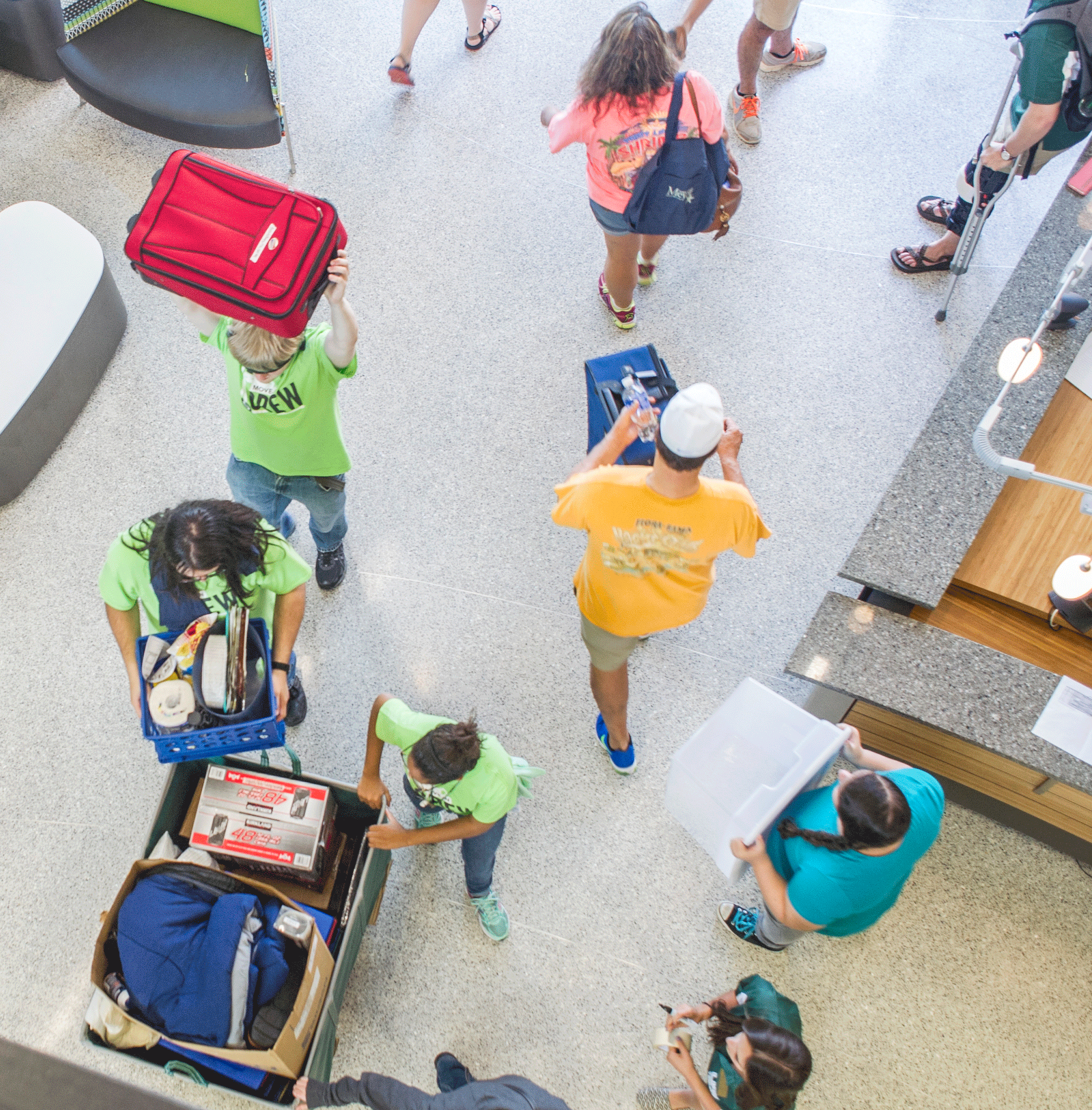 Klapow recommends establishing new routines that can help take the place of life at home.Homesickness is not uncommon among young people heading off to their freshman year in college, and they might not be the only family members dealing with some separation anxiety. For many parents, empty nest syndrome is a significant problem.
Klapow recommends establishing new routines that can help take the place of life at home.Homesickness is not uncommon among young people heading off to their freshman year in college, and they might not be the only family members dealing with some separation anxiety. For many parents, empty nest syndrome is a significant problem.
University of Alabama at Birmingham clinical psychologist Josh Klapow, Ph.D., says there is a period of adjustment for both groups.
“Homesickness is very common — a longing for the familiar while feeling out of sorts in a new environment,” Klapow said. “It’s a normal part of moving on to a new experience, and usually there is nothing to worry about.”
“For parents, the transition from having children in the house to having no one there can be a big one,” he said. “Whether it is one child or the last of four, parents’ lives change dramatically when a child leaves.”
Klapow says new students need to recognize that feelings of homesickness are normal. He recommends establishing new routines that can help take the place of life at home.
“Carve out your comfortable space in the dorm or apartment,” Klapow said. “Claim your study spot and establish a daily routine in all things — when you work out, what you eat, when you study, etc. And make connections back to home part of that routine. A daily text or email, perhaps, or a weekly phone call. It’s great to touch base with home, but don’t let it dominate your life.”
Klapow also says don’t be afraid to talk to a resident assistant or student life director for guidance.
“Most college students experience some level of homesickness, and most transition through it,” he said. “Recognize that there will be good days and bad days, and within a few months you should be well on your way to a new routine. If the feelings become more intense and interfere with your activities at school, it may be time to seek help from the school’s student health clinic or talk the issue out with parents or counselors.”
For empty nesters, the new-found freedom may be great; but the sense of loss may be greater.
“The advice for empty nesters is much the same as it is for new collegians,” Klapow said. “Establish a new routine to replace the old one. Stay busy, and plan regular activities such as lunch with friends or movie night.”
Revisit projects that never got done, or interests that were never explored. Now is the time to branch out to accomplish those things that just didn’t happen before.
“Your relationship with your child doesn’t end because they leave home, but it will bring about change,” Klapow said. “Suggest — not demand — a weekly chat with your child. Buy some pre-paid calling cards to make it easy. Keep your child informed of your doings through email or texts (but don’t always expect an answer), and there is nothing wrong with an old-fashioned care package. Groceries, treats, photos of doings at home. Kids might want to act all grown up, but gestures such as these are usually very appreciated.”
Klapow says the key is to not overdo it early on, but listen to your child. If they are receptive, then carry on. If you get resistance, then slow down; but don’t stop. Take it slow and build gradually until you find the right blend.